What Are Compound Prepositions?
Compound prepositions are prepositions made up of two or more words that function as a single unit. These prepositions are often formed by combining a simple preposition with a noun, an adjective, or another preposition. They are used to show relationships between nouns and other words in a sentence.
Some common examples of compound prepositions include:
- In front of
- On behalf of
- According to
- In addition to
Compound prepositions allow us to express more complex ideas and relationships between people, objects, and events. They are a useful tool in both written and spoken English.
Why Are Compound Prepositions Important?
Compound prepositions help provide more detailed information in a sentence, adding clarity to where, when, or why something happens. By mastering them, English learners can improve the flow and accuracy of their sentences.
For example, consider the sentence:
- “She sat in front of the teacher.”
The phrase “in front of” tells us exactly where she sat, making the sentence more specific.
List of Common Compound Prepositions
| Compound Preposition | Meaning |
|---|---|
| In front of | Positioned ahead of something/someone |
| On behalf of | Representing someone or something |
| According to | As stated by or in line with something |
| In addition to | As well as, besides something else |
| Because of | Due to, as a result of |
| In spite of | Despite something |
| In place of | Instead of something or someone |
| In relation to | Concerning or regarding something |
| By means of | Using a method or way |
| With regard to | Concerning or related to something |
How to Use Compound Prepositions in Sentences
| Compound Preposition | Example Sentence |
|---|---|
| In front of | She parked her car in front of the house. |
| On behalf of | I’m speaking on behalf of the committee. |
| According to | According to the report, sales are up. |
| In addition to | In addition to coffee, she ordered tea. |
| Because of | The game was canceled because of rain. |
| In spite of | They succeeded in spite of the challenges. |
| In place of | She worked in place of her colleague. |
| In relation to | The changes were made in relation to the policy. |
| By means of | They solved the problem by means of technology. |
| With regard to | With regard to your request, we will respond soon. |
Key Differences Between Simple and Compound Prepositions
It’s useful to understand the difference between simple prepositions and compound prepositions. Simple prepositions are single words like “in,” “on,” or “at.” Compound prepositions are multi-word phrases that function as a single preposition.
Here’s a quick comparison:
| Simple Preposition | Compound Preposition |
|---|---|
| In the room | In front of the room |
| On the table | On behalf of the organization |
| At noon | In addition to the meeting, we have lunch |
Compound Prepositions: Key Points to Remember
- They always connect two parts of a sentence and explain the relationship between them.
- They can add specific details about time, place, cause, or manner.
- Compound prepositions are multi-word phrases that act like single prepositions.
- For clarity, always ensure the preposition fits the context of the sentence.
Compound Prepositions with Example Sentences
| Compound Preposition | Example Sentence |
|---|---|
| According to | According to the news, it will rain. |
| Ahead of | We arrived ahead of schedule. |
| Along with | She came along with her brother. |
| Apart from | Apart from the rain, the day was perfect. |
| Because of | We stayed inside because of the storm. |
| By means of | He fixed it by means of a hammer. |
| In addition to | In addition to math, I study science. |
| In front of | She stood in front of the class. |
| In spite of | In spite of the cold, we went out. |
| Instead of | We chose pizza instead of pasta. |
| On behalf of | I spoke on behalf of the group. |
| Out of | He ran out of money. |
| Due to | The event was canceled due to rain. |
| As for | As for the cake, it’s delicious. |
| Next to | I sit next to my best friend. |
| Ahead of | She was ahead of everyone in line. |
| Along with | They sent a card along with the gift. |
| Apart from | Apart from work, he enjoys reading. |
| Because of | We left early because of traffic. |
| In front of | The car stopped in front of the house. |
List of Compound Prepositions
- According to
- Ahead of
- Along with
- Apart from
- As for
- Because of
- By means of
- Due to
- In addition to
- In front of
- In spite of
- Instead of
- On account of
- On behalf of
- Out of
- Up to
- Next to
- Owing to
- Prior to
- In place of
- In relation to
- In case of
- In light of
- In favor of
- In the middle of
- In view of
- With regard to
- With respect to
- In contrast to
- By way of
Learn more helpful articles




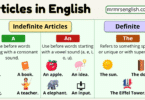
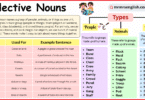
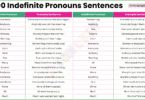
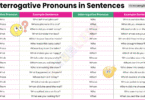
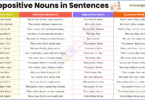
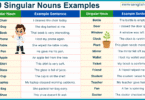
Leave a Comment